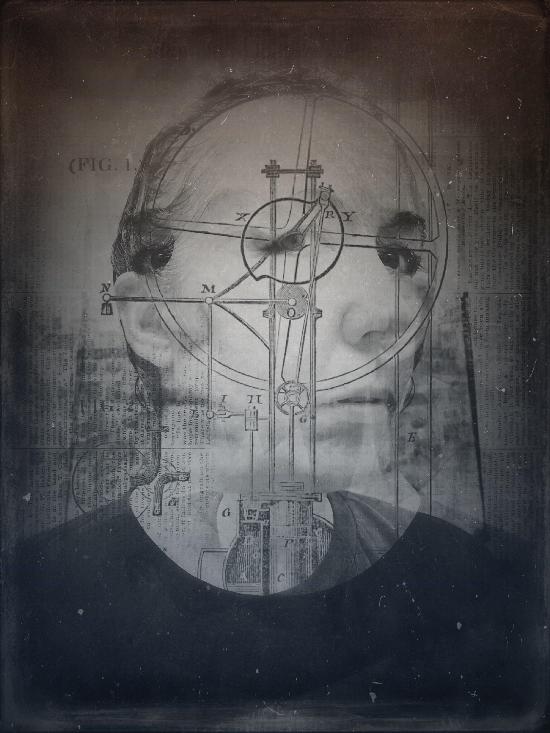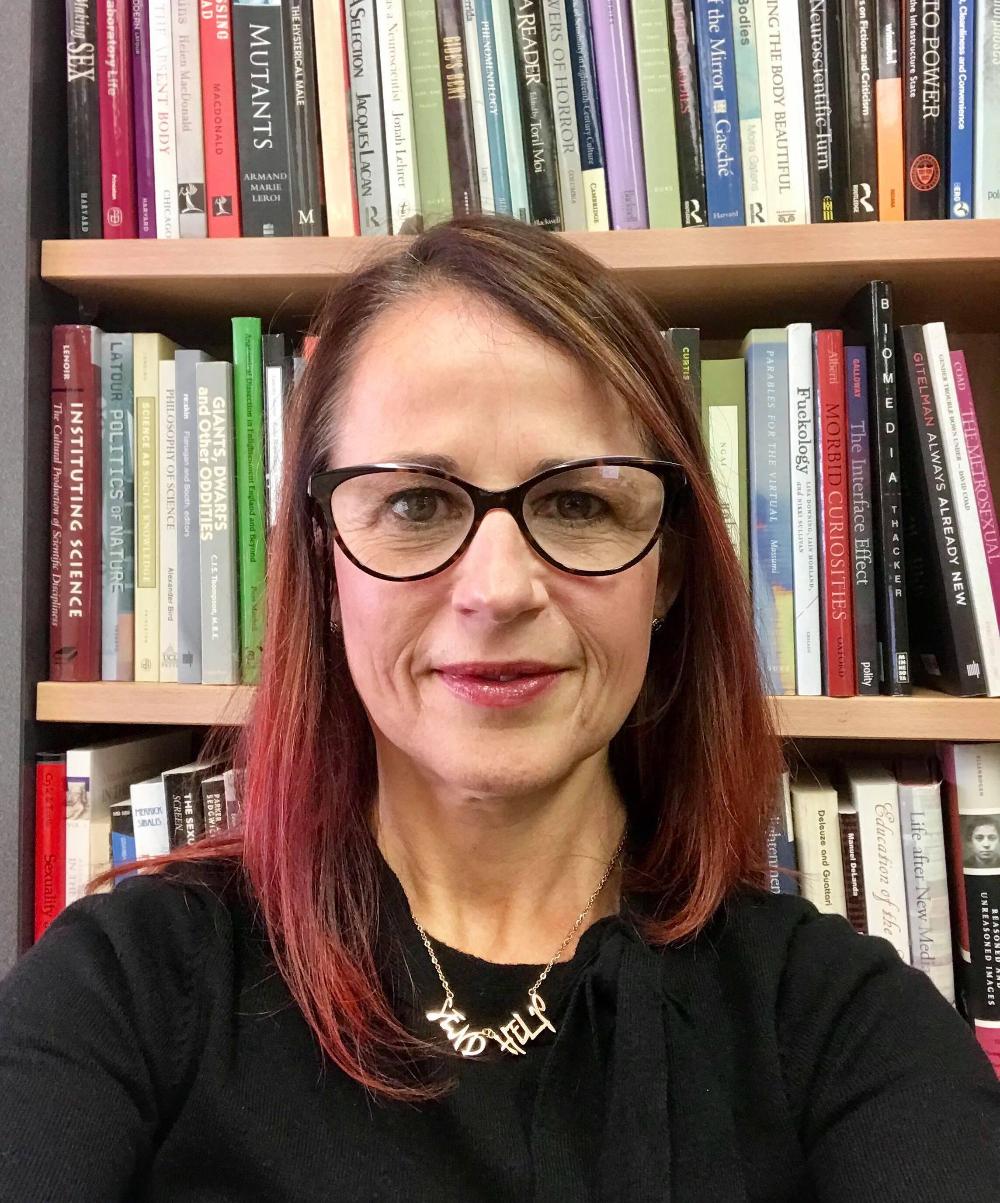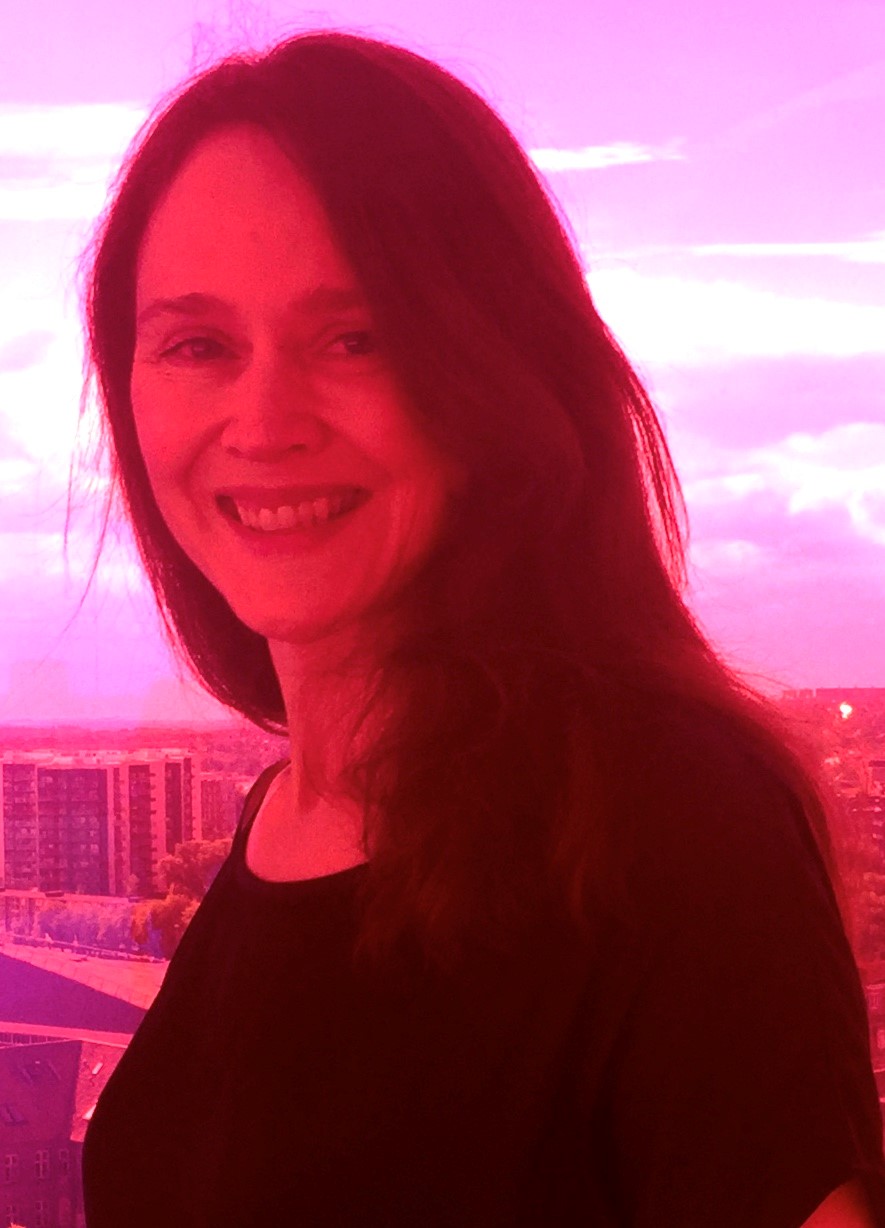2018 Bodies, Devices and Platforms Symposium

This one day symposium looks across a range of disciplines to consider the coming together of the body with digital devices and media platforms. In this formulation, the body is tracked, networked, coded, monitored and represented on a range of digital media platforms. This involves a making available of the body to the algorithmic and participatory logics of digital media platforms and an entangling of its experiences with these architectures. The networked body is explored as fundamental to understandings of both the body and the digital economy. The event is likely to be of benefit to the school as it will bring together a range of experts in a day aimed at showcasing important work in the field.
One-Day Symposium :-
- 9:30am - 11:30am ~ Session one: Dr Elizabeth Stephens and Dr Gavin Smith
- 11:30am - 12:00pm ~ Morning tea
- 12:00pm - 1:30pm ~ Session two: Dr Shanti Sumartojo and Dr Lisa Bode
- 1:30pm - 2:30pm ~ Lunch
- 2:30pm - 4:00pm ~ Session three: Sarah Pink.
Abstract
Bodies of Data: The Emergence of the Quantified Self and the Normal Person
In a time when everyday cultural practices and media devices double as data collection and analysis technologies, it is instructive to return to the origins of the data society, and to examine its context of its formation during the first half of the twentieth century. This presentation will trace the conditions of emergence of the data society in order to cast new light on the larger cultural shift towards quantified forms of knowledge production that subtends it. In the middle of the twentieth century, increasingly quantified methodologies began to dominate the study of health, sexuality, psychology, education, physical ability, productivity and happiness.
The stated purpose of much of this research was to identify, and support, the “normal” person. This presentation focuses on the idea of the “normal person” developed in this context, and the competing ideas of normalisation and normativity to which it gave rise. Attending to this history provides a more nuanced understanding of the meaning of these terms, as well as the differences between them. In this way, it also opens the possibility of new approaches to the rise of datafied selves and societies that characterise the digital age.
Bio:
 Elizabeth Stephens is an Australian Research Council Future Fellow and Associate Professor of Cultural Studies in the Institute for Advanced Studies in the Humanities at the University of Queensland. She is the author of three monographs: A Critical Genealogy of Normality (University of Chicago Press 2017), co-authored with Peter Cryle; Anatomy as Spectacle: Public Exhibitions of the Body from 1700 to the Present (Liverpool University Press 2011); and Queer Writing: Homoeroticism in Jean Genet's Fiction (Palgrave 2009).
Elizabeth Stephens is an Australian Research Council Future Fellow and Associate Professor of Cultural Studies in the Institute for Advanced Studies in the Humanities at the University of Queensland. She is the author of three monographs: A Critical Genealogy of Normality (University of Chicago Press 2017), co-authored with Peter Cryle; Anatomy as Spectacle: Public Exhibitions of the Body from 1700 to the Present (Liverpool University Press 2011); and Queer Writing: Homoeroticism in Jean Genet's Fiction (Palgrave 2009).
Abstract
The sensorial politics of data sense: exploring subjective experiences of wearable tech
This paper builds on empirical research I have been doing on the subjective dimensions of wearable tech and the embodied experiences of bioveillance, more broadly. It offers a detailed analysis of approximately 20 in-depth interviews I have conducted with wearable tech users in the health context about the diverse meanings they assign to the 'corrective' devices they must routinely bear on their bodies for the purposes of managing chronic illness. Using Lupton's (2016) notion of 'imposed' tracking as inspiration for the sample selection, as well as previous ideas I have developed (Smith, 2016; 2017) around the unseen work that data-proxies perform and necessitate, and their implications for bodily intuition, I contend that corrective technologies generate ambiguous outcomes for those subject to them. They provide certain affordances while simultaneously acting to govern the body and its interiority in new ways: in ways that often displace the embodied experiences and sensory systems of the wearer. Moreover, such technologies are situated within a wider set of political economies and socio-cultural relations which mediate their design, availability and uptake. Taken together, these meanings and factors have an important impact on whether such devices are perceived as enabling or constraining, how they are used in everyday life, and what consequences their usage excite.
Bio
Gavin J.D. Smith (@gavin_jd_smith) is Deputy Head of the ANU School of Sociology. His research explores the social uses, meanings and impacts  of digital technologies and data processes from a sociological perspective. He is especially interested in the labour relations attendant on practices of watching and experiences of being watched. His latest book, Opening the Black Box: The Work of Watching provides an ethnographic account of CCTV camera operation, specifically exploring the types of meanings camera operators ascribe to the multiplex work they perform. His ideas appear in leading journals such as Body & Society, Big Data & Society, Critical Public Health, Theoretical Criminology, Surveillance & Society, The British Journal of Criminology and Urban Studies. He was co-editor (2011-2016) of the open-access international journal, Surveillance & Society.
of digital technologies and data processes from a sociological perspective. He is especially interested in the labour relations attendant on practices of watching and experiences of being watched. His latest book, Opening the Black Box: The Work of Watching provides an ethnographic account of CCTV camera operation, specifically exploring the types of meanings camera operators ascribe to the multiplex work they perform. His ideas appear in leading journals such as Body & Society, Big Data & Society, Critical Public Health, Theoretical Criminology, Surveillance & Society, The British Journal of Criminology and Urban Studies. He was co-editor (2011-2016) of the open-access international journal, Surveillance & Society.
Abstract
Public atmospheres and digital/spatial entanglement
This talk will discuss an ongoing collaborative project that investigates the commemoration of the one-year anniversary of the Manchester bombing, a terrorist attack that killed 22 people. Major public events such as commemorations are as much felt by participants as they are discursively understood, and accordingly they can be treated as moments when distinctive atmospheres coalesce are experienced, and shape meaning. Using the Manchester event as a case study, I will unfold a set of arguments about public atmospheres that show how they arise from particular empirical conditions – configurations of people, things, built environments, sensations, imagination and memories – and that crucially this includes their articulation and circulation via social media. Focusing on how we might conceive of shared affects as co-comprised by bodies and digital technologies, I will begin to tease out the connective logics that cross between the online and offline realms, arguing that we must understand the spatial and digital as mutually constituting to make sense of what commemorative events do for people, and what they might make possible.
Bio
Shanti Sumartojo is a Senior Research Fellow and Vice-Chancellor's Research Fellow in the School of Media and Communication at RMIT  University and a core member of the Digital Ethnography Research Centre. Currently, a main focus is ongoing research on how people encounter and make sense of designed environments, with a focus on instances of urban spatial transformation - these projects are chiefly located in her home city of Melbourne. Another stream of research investigates the experience of commemorative sites and events in the context of the First World War centenary, but also in response to terrorist attacks in urban public settings. A third area is concerned with healthcare environments, and how their design can contribute to forms of wellbeing. All three areas are linked by methodologies that include sensory and design ethnography. Her most recent books include Atmospheres in the Experiential World: Theory and Methods (2018) (co-authored with Sarah Pink) and Commemorating Race and Empire in the Great War Centenary (2017) (co-edited with Ben Wellings).
University and a core member of the Digital Ethnography Research Centre. Currently, a main focus is ongoing research on how people encounter and make sense of designed environments, with a focus on instances of urban spatial transformation - these projects are chiefly located in her home city of Melbourne. Another stream of research investigates the experience of commemorative sites and events in the context of the First World War centenary, but also in response to terrorist attacks in urban public settings. A third area is concerned with healthcare environments, and how their design can contribute to forms of wellbeing. All three areas are linked by methodologies that include sensory and design ethnography. Her most recent books include Atmospheres in the Experiential World: Theory and Methods (2018) (co-authored with Sarah Pink) and Commemorating Race and Empire in the Great War Centenary (2017) (co-edited with Ben Wellings).
Abstract
Looker: Imagining the future digital body in early 1980s SF cinema
In the era of eye-tracking responsive media, AI generated photorealistic humans, and virtual Instagram influencers, Michael Crichton’s 1981 SF movie Looker seems now uncannily prescient. Dismissed at the time of its release for its far-fetched silliness, Looker concerns an advertising agency that deploys computers to create perfected malleable clone images of beautiful models, and then animate them on viewer’s TV screens in response to eye-tracking data. This paper examines the film as a piece of media history, an instance of rich speculative discourse about our technologies, which may pull aspects of our present into clearer focus. It asks, how is this future digital body imagined and visualised, and in what ways is it shaped by long-standing tropes about women and technology? How in turn is this digital body entangled with the film's anxieties about a future where image and viewer are caught in a loop of visual pleasure, tracking and control?
Bio:
Lisa Bode is Senior Lecturer in Film and Television Studies. She is the author of Making Believe: Screen Performance  and Special Effects in Popular Cinema (Rutgers University Press, 2017) and several articles on digital resurrection of dead actors, screen stardom, and animation. She is currently working on a project historicizing digital visual effects in the cinema, from 1976 to the present.
and Special Effects in Popular Cinema (Rutgers University Press, 2017) and several articles on digital resurrection of dead actors, screen stardom, and animation. She is currently working on a project historicizing digital visual effects in the cinema, from 1976 to the present.
Abstract
Emerging Technologies: rethinking the agenda through design anthropology
Emerging technologies - such as self driving cars, drones, AI bots and more - are continually promoted in news, policy and industry narratives to be about to have an 'impact' on society. It is alarming that such narratives continue to dominate in a world where social scientists have long since demonstrated that something quite different happens - that people use, appropriate, improvise with and engage new technologies in such ways that enable them to continue to live as comfortably as possible in the world. In this lecture I explore this problem from two perspectives.
First I demonstrate how this situation plays out through the example of self-driving cars - the most hyped emerging technology in 2015, and Autonomous Driving Vehicles (ADV) featured amongst MIT Technology Review’s Top 10 Emerging Technologies in 2015, 2016 and 2017. It is often problematically assumed in industry and policy contexts that benefits promised by AD will be achieved if humans simply trust, accept and adapt to them. Subsequently technology and infrastructure research, testing and preparation by industry, planning and policy stakeholders is focused towards these ends. Yet recent collective ethnographic research into how people imagine and experience future AD cars suggests things are not so simple. I will discuss how anthropological interventions based on an ethnographic-theoretical dialogue around questions such as trust, uncertainty and incompleteness propose a re-thinking of the assumptions that underpin dominant discourses concerning the 'impact' AD will have on society.
Second, I would like to open up discussion about the role of the social sciences in relation to emerging technologies: how where and why should we intervene?
Professor Pink’s talk is being co-sponsored/hosted by ‘Digital Data and Society network’.Bio:
Sarah Pink is Professor and Director of the Emerging Technologies Lab, across the Faculties of IT and Art, Design and Architecture at Monash University, and International Guest Professor at Halmstad University, Sweden. Her research is interdisciplinary, international and interventional, and currently focuses on emerging technologies and design for wellbeing. Her methodological research advances design anthropology and visual, sensory and digital ethnographic approaches. Her recent books include Uncertainty and Possibility (2018), Atmospheres and the Experiential World (2018), Anthropologies and Futures (2017) and Making Homes (2017).
and International Guest Professor at Halmstad University, Sweden. Her research is interdisciplinary, international and interventional, and currently focuses on emerging technologies and design for wellbeing. Her methodological research advances design anthropology and visual, sensory and digital ethnographic approaches. Her recent books include Uncertainty and Possibility (2018), Atmospheres and the Experiential World (2018), Anthropologies and Futures (2017) and Making Homes (2017).
Enquiries: c.wilsonbarnao@uq.edu.au
We would like to acknowledge our generous sponsors and in-kind support:




About Research Seminar and Workshop Series
School of Communication and Arts Research Seminar Series
The research seminar and workshop series occur each semester, each with a different topic and guest speaker from UQ or otherwise.
Friday, 28 February Hybrid: Online via Zoom and in person at the | Generative Hate | |
Friday, 21 March Hybrid: Online via Zoom and in person at the | Close Encounters of the Hermeneutic Kind: UFOs as More-than-Human Media | |
Friday, 11 April Hybrid: Online via Zoom and in person at the | Indigenous and Local Knowledge Systems and Community Radio in India | A/Prof Elske van de Fliert |
Friday, 23 May Hybrid: Online via Zoom and in person at the | The Drama Of Anthropological History | |
Friday, 6 June Hybrid: Online via Zoom and in person at the | Video, Bias, Action. Mitigating Cognitive Biases through Role-Play Video Scenarios | |
Thursday, 31 July Hybrid: Online via Zoom and in person at the | Crossing Disciplinary Boundaries: Experiments in Public Engagement | Prof Sally Shuttleworth (Oxford University) |
Friday, 8 August Hybrid: Online via Zoom and in person at the | Designing engagement for coral reef rescue | A/Prof Elske van de Fliert and Dr Skye Doherty |
Friday, 22 August Hybrid: Online via Zoom and in person at the | Pigeon Fool’s Turing test: The relationship between embodied AI bots and networked and absent humans | Dr Abbie Trott |
Friday, 19 September Hybrid: Online via Zoom and in person at the | War in Our Hyperconnected World: Exposing the Invisible Battlespace | Dr Kathryn Brimblecombe-Fox |
Friday, 17 October Hybrid: Online via Zoom and in person at the | A/Prof Alberto N. García (Universidad de Navarra) | |
Friday, 24 October Hybrid: Online via Zoom and in person at the | Forking paths, simultaneous timelines and river monsters: an origin-story artist talk from early hypertext to XR storytelling machines | Prof Caitlin Fisher (York University, Canada) |
Venue
James and Mary Emelia Mayne Centre (Building 11)
